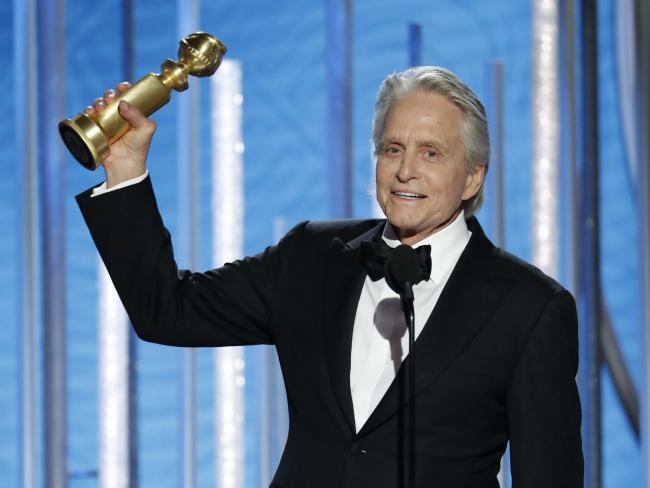(Bloomberg) -- Professor Chris Mayer has a lesson for homeowners: Reverse mortgages, which let older Americans tap their home equity without selling or moving, aren’t as risky as some say. In an online video, he brushes aside “common misconceptions,” including fears about losing your home.
Mayer, a real estate professor at Columbia Business School, isn’t an impartial observer. He’s chief executive officer of a company that sells reverse mortgages. He’s trying to rehabilitate one of the U.S.’s most-reviled financial products—part of a broader push that relies in part on academics with interests in the mortgage industry.
The host of Mayer’s talk was the American College of Financial Services, a school that trains financial planners and insurance agents. Until recently, it had a task force funded by reverse mortgage companies, which each contribute $40,000 a year. They include Mayer’s firm, Longbridge Financial, and Quicken Loans’ One Reverse Mortgage.
To show the need for reverse mortgages, industry websites cite a Boston College retirement research center run by Alicia Munnell, a professor and former assistant secretary of the Treasury Department in the Clinton administration. She once invested $150,000 in Mayer’s company, though she’s since sold her stake.
The six-year-old task force cites key successes. Mainstream publications have run articles quoting positive research on the loans, and financial planners are growing more comfortable recommending them. The Financial Industry Regulatory Authority, the securities industry’s self-regulatory agency, in 2014 withdrew its warning that reverse mortgages should generally be used as “a last resort.”
Mayer and Munnell said they’ve fully disclosed, in research, appearances, and interviews, their financial interest in the lender. Columbia and Boston College both said they approved the arrangements.
The professors and industry officials say these government-backed mortgages deserve a second look, partly because of a series of federal reforms in recent years designed to protect taxpayers and consumers.
“We are looking to help people responsibly incorporate home equity in their retirement planning,” Mayer said of Longbridge.
Reverse mortgages let homeowners draw down their equity in monthly installments, lines of credit or lump sums. The balance grows over time and comes due on the borrower’s death, at which point their heirs may pay off the loan when they sell the house. Borrowers must keep paying taxes, insurance, maintenance and utilities—and could face foreclosure if they don’t.
While even critics say the mortgages can make sense for some customers, they say the loans are still too expensive and can tempt seniors to spend their home equity early, before they might need it for health expenses.
Fees on a $100,000 loan, based on a $200,000 home, can total $10,000. Because the fees are typically wrapped into the mortgage, they compound at interest rates that can rise over time. Homeowners who need cash could be better off selling and moving to less expensive quarters.
“The profits are significant, the oversight is minimal, and greed could work to the disadvantage of seniors who should be protected by government programs and not targeted as prey,” said Dave Stevens, CEO of the Mortgage Bankers Association until last year and a commissioner for the Federal Housing Administration in the Obama administration.
Academics represent a new face for an industry that’s long relied on aging celebrity pitchmen. The late Fred Thompson, a U.S. senator and Law & Order actor, represented American Advisors Group, the industry’s biggest player. These days, the same company leans on actor Tom Selleck.
“Just like you, I thought reverse mortgages had to have some catch,” Selleck says in an online video. “Then I did some homework and found out it’s not any of that. It’s not another way for a bank to get your house.”
Michael Douglas, in his Golden Globe-winning performance on the Netflix (NASDAQ:NFLX) series The Kominsky Method, satirizes such pitches. His financially desperate character, an acting teacher, quits filming a reverse mortgage commercial because he can’t stomach the script.
In 2016 administrative proceedings, the U.S. Consumer Financial Protection Bureau accused American Advisors, as well as two other companies, of running deceptive ads. Without admitting or denying the allegations, American Advisors agreed to add more caveats to its advertising and pay a $400,000 fine.
Company spokesman Ryan Whittington said the company has since made “significant investments” in compliance. Reverse mortgages are “highly regulated, viable financial tools,” and all customers must undergo third-party counseling before buying one, he said.
The FHA has backed more than 1 million such reverse mortgages. Homeowners pay into an insurance fund an upfront fee equal to 2 percent of a home’s value, as well as an additional half a percentage point every year.
After the last housing crash, taxpayers had to make up a $1.7 billion shortfall because of reverse mortgage losses. Over the past five years, the government has been tightening rules, such as requiring homeowners to show they can afford tax and insurance payments.
In response to public concerns, Shelley Giordino, then an executive at reverse mortgage company Security 1 Lending, co-founded the Funding Longevity Task Force in 2012. It later became affiliated with the Bryn Mawr, Pennsylvania-based American College of Financial Services.
Giordino, who now works for Mutual of Omaha’s reverse mortgage division, described her role as “head cheerleader” for positive reverse mortgages research. Gregg Smith, CEO of One Reverse Mortgage, said the group is promoting “true academic research,” including work by professors with no industry ties.
In January, the American College cut its ties with the task force because the school, as a nonprofit institution, wasn’t comfortable being affiliated with an organization endorsing products, according to Vice President James N. Katsaounis. “A proper retirement portfolio is one that is well-balanced and diversified, which may or may not include reverse mortgages,” he said.
Mayer, the Columbia professor and reverse mortgage company CEO, said many older consumers could benefit from the loans because they can never owe more than their house is worth even if real estate prices plunge.
A former economist at the Federal Reserve of Boston with a Ph.D. from the Massachusetts Institute of Technology, Mayer joined the Columbia faculty in 2004 and currently co-directs Columbia’s Paul Milstein Center for Real Estate. He wrote his first paper on reverse mortgages in 1994, when the FHA product was five years old.
In 2012, Mayer co-founded Longbridge, based in Mahwah, New Jersey, and in 2013 became CEO. He’s on the board of the National Reverse Mortgage Lenders Association. He said his company, which services 10,000 loans, hasn’t had a single completed foreclosure because of failure to pay property taxes or insurance.
While many colleges let professors engage in outside business activities, Gerald Epstein, a University of Massachusetts economics professor who’s studied academic conflicts of interest, said Columbia may need to scrutinize Mayer’s arrangement closely.
“They really should be careful when people have this kind of dual loyalty,” he said.
Columbia said it monitors Mayer’s employment as CEO of the mortgage company to ensure compliance with its policies. “Professor Mayer has demonstrated a commitment to openness and transparency by disclosing outside affiliations,” said Chris Cashman, a spokesman for the business school. Mayer has a “special appointment,” which reduces his salary and teaching load and also caps his hours at Longbridge, Cashman said.
Likewise, Boston College said it reviewed Professor Munnell’s investment in Mayer’s company, on whose board she served from 2012 through 2014. Munnell said another round of investors in 2016 bought out her $150,000 stake in Longbridge for an additional $4,000 in interest.
She said she now prefers another approach: States allowing seniors to defer property tax payments. The advantages include “no fee, no paperwork and no salespeople,” she said. In one way, she’s glad she exited her reverse mortgage investments.
“Anytime I had a conversation like this, I had to say at the beginning that I have $150,000 in Longbridge,” she said. “I had to do it all the time. I’m just as happy to be out, for my academic life.”


